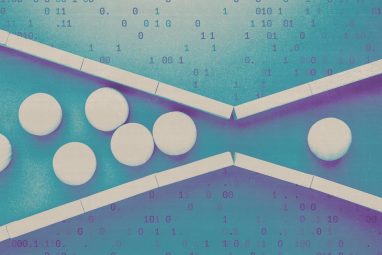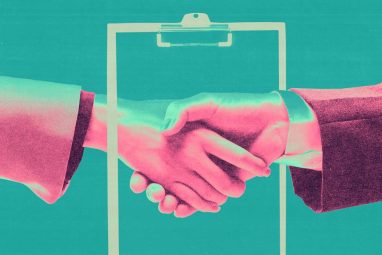5 Days of GITEX 2025 Unpacked: Key Moves, Trends, and Takeaways
GITEX GLOBAL 2025 concluded in Dubai after five fiery days of AI, autonomy, and enterprise breakthroughs. Here’s what leaders need to know.
News
- Inside Al Baraka Bank Egypt’s First Digital Branch
- Dubai Chamber of Digital Economy Partners With Canva to Set Up Regional HQ
- Apple Puts Virtual Health Coach On Hold Amid Tough Competition
- Alphabet Remains Cautious On Apple Deal, Dodges Investor Question
- HBKU and QRDI Enter Partnership to Advance National Tech Capabilities
- UAE Families Expect AI to Redefine How They Live, Bond, and Raise Children

[Image source: Chetan Jha/MITSMR Middle East]
After a five-day surge of breakthrough announcements and deal-signing, GITEX GLOBAL 2025 concluded on a high note. The event, endorsed as a global force in steering UAE’s AI leadership, cemented collaboration and investments.
In one of the most anticipated sessions of the event, OpenAI CEO Sam Altman and G42’s Peng Xiao led a dialogue on building AI-Native Societies, and how global partnerships are shaping the new AI economy.
Throughout the week across packed halls, hundreds of ministers and officials from the UAE, EU, Asia, and beyond debated trust, regulation, and sovereignty in the AI era, signaling a shift from demonstration to deployment.
A string of announcements revealed the UAE’s widening ambition—to modernize its institutions, rewire its cities, and prepare its people for a world run on digital intelligence.
AWS and e& unveiled AI Nation – Afaaq, a major programme to train 30,000 people across the UAE in AI and cloud technologies, connecting skills to demand. Shortly after, e& UAE and Huawei launched an Optical Innovation Centre (OIC) — a lab-to-field hub for co-developing AI-ready networks and pushing next-gen infrastructure.
The Ministry of Economy and Tourism rolled out AI-powered digital solutions to streamline trademark registration, enterprise setup, and business licensing. These tools are designed to simplify customer journeys, cut costs, and make regulatory services more responsive
Meanwhile, Dubai Municipality showcased an expanded portfolio of urban-tech innovations from integrated waste systems to the “Dubai Live” real-time monitoring platform and the DANA smart city management system using AI, GIS, and digital twins.
In collaboration deals, Tealium and AWS, announced deploying customer data platforms within UAE data centers to enable real-time, privacy-aware AI personalization for local enterprises. Furthermore, e& UAE and Intel announced plans to set up an AI Centre of Excellence to develop smarter, faster edge solutions using Intel Gaudi 3 chips. The centre will test and build large language models and help bring secure, scalable AI services across the UAE.
On the initial days of the event, the narratives were more focused on probing biology, mind interfaces, and reimagining governance.
Trevor Martin of Mammoth Biosciences, asserted that CRISPR + AI are “rewriting the code of life.” His group’s ambitions stretch from treating rare diseases to altering the very trajectory of human health.
In the neurotech space, Matt Angle of Paradromics introduced a brain-computer interface that translates attempted speech into audible words — a paradigm shift for patients who have lost their voices.
The stage belonged, for a moment, to the animal kingdom. In Genomics Beyond Humans: Unlocking Evolution’s Drug Library, Ashley Zehnder, CEO of Fauna Bio, spoke about decoding the genetic secrets of species that regenerate their own organs—the spiny mouse, among others—to unlock what she called “evolution’s drug library.” Then Jack Hidary, CEO of SandboxAQ, offered a glimpse into the advancement for smallest of small atoms through large quantitative model or LQM that simulates molecules in virtual laboratories, compressing decades of pharmaceutical research into months.
The broader question running through these discussions—whether healthcare can shift from reactive to intelligent—was taken up by Dimitris Moulavasilis, CEO of M42, and Dr. Georges-Pascal Haber, of Cleveland Clinic. “Today’s systems are treatment-oriented, hospital-centric, reactive,” Moulavasilis said. He emphasised on having to redesign these systems from the ground up to keep patients healthy.
On the ground, multiple demonstrations drew attention, like AI-optimized cities and grid systems and AR contact lens prototypes. Startups actively showed off too — from AI emotion reading for autism, to generative antibody design, to sound-based wellness.
A number of public-private deals were inked. In government innovation, Abu Dhabi launched a no-code AI-in-a-box initiative (in collaboration with UnifyApps) to let 50,000 public employees build intelligent tools. Six strategic partnerships across AI, energy, clean tech, and education were inked, positioning the emirate to become the world’s first “AI-native” government. Dubai Municipality and Cisco had signed an MoU to wire the city’s next-generation digital infrastructure, reinforcing Dubai’s ambition to become a global example of a smart data-driven city.








